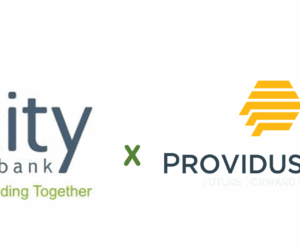The Federal Government has declared that starting January 2026, Nigerians will be required to present both their National Identification Number (NIN) and Tax Identification Number (Tax ID), along with other personal data such as phone number and address, when accessing services from financial institutions and Virtual Asset Service Providers (VASPs).
This directive comes under the recently enacted Nigeria Tax Administration Act, 2025 and the Nigeria Tax Act, 2025, aimed at enhancing regulatory oversight and closing existing gaps in the financial system.
Key Provisions & What’s New
- Who it applies to: All individuals and entities engaging in economic activity, including those exploiting intellectual or tangible property for income, regardless of their residential status in Nigeria. That means both traditional banking customers and users or providers of virtual asset services (e.g. crypto exchanges, custodial platforms) are affected.
- Required details: At minimum, the customer’s name, NIN, Tax ID, phone number, address, and email. For VASPs, information on the type, date, and value of virtual asset transactions must also be submitted on a monthly basis.
- Reporting thresholds: Financial institutions must report quarterly to tax authorities.
- For individuals: where cumulative monthly transactions exceed ₦25 million
- For corporate customers: where cumulative monthly transactions exceed ₦100 million.
Enforcement & Penalties
- Non-compliance by VASPs could incur a ₦10 million fine, plus ₦1 million for every subsequent month of continued non-compliance. In extreme cases, the Securities and Exchange Commission (SEC) may revoke licenses.
Why This Matters
- Improved Compliance & Tax Revenue: With estimated leakages running into hundreds of billions yearly, tighter KYC/ID norms and mandatory Tax IDs are expected to bring those currently outside the formal tax net into compliance.
- Curbing Illicit Finance: The requirement for identification for virtual asset transactions is a response to rising concerns over money laundering, fraud and untracked capital flows in the crypto space.
- Consumer Protection: By enforcing regulatory oversight, authorities aim to shield consumers from fraudulent schemes while ensuring transparency in financial and digital assets services.
Challenges Ahead
- Implementation Readiness: Many Nigerians currently lack an NIN or Tax ID, or struggle to retrieve them. The government will need strong mobilization and public awareness programmes.
- Infrastructure & Data Protection: Ensuring that data collected is securely stored and used responsibly will be crucial to prevent identity theft, breaches, or misuse.
The move reinforces the Federal Government’s commitment to strengthening its regulatory framework, especially as digital finance and virtual assets become more mainstream in Nigeria’s economy.
Stakeholders have been urged to begin preparations to meet these requirements ahead of the January deadline.








